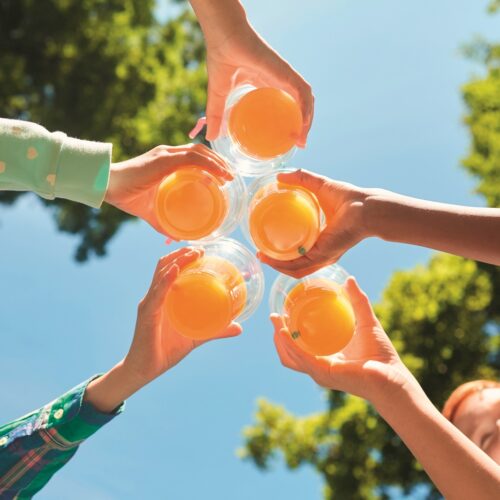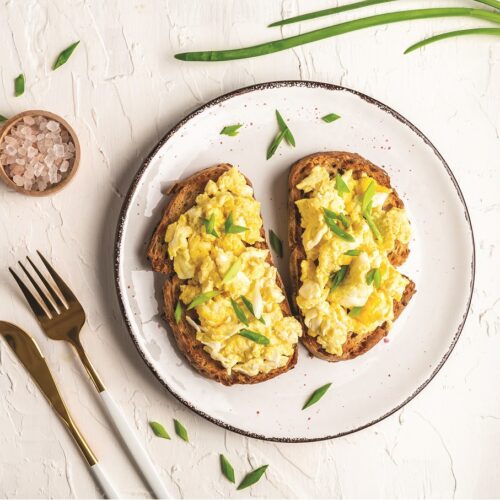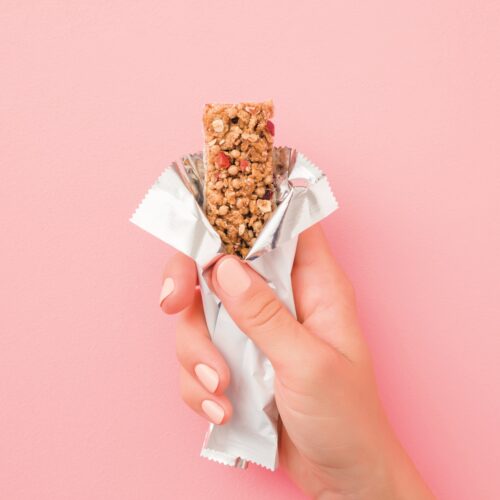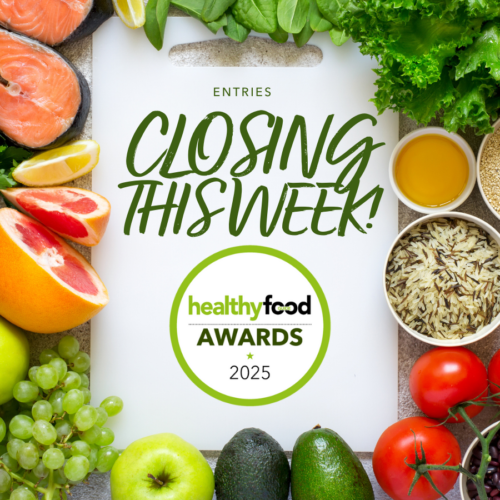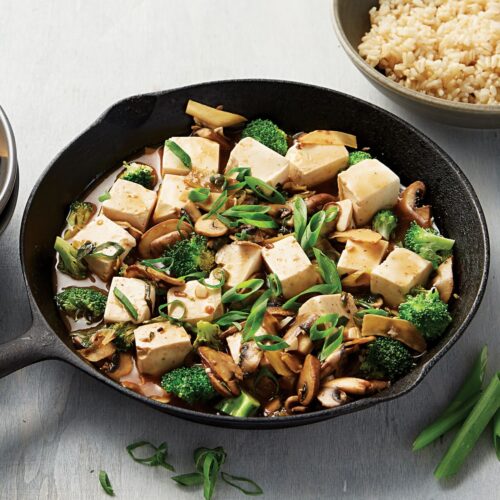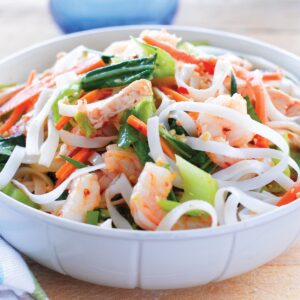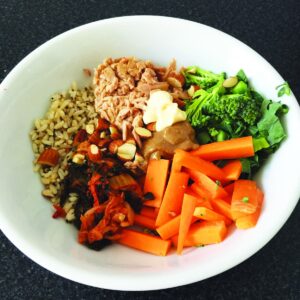
Adding a dressing to summer salads or vegetables can transform a dull dish into something far more interesting and tasty. But some dressings can add more kilojoules than we realise, not to mention sodium, sugar and saturated fat, so it pays to choose wisely.
What’s available
The supermarket shelves are stocked with a variety of dressings: mayonnaise, aioli, vinaigrette, creamy Caesar, ranch, balsamic, thousand island, honey mustard and avocado- and sesame-based dressings, to name just a few. Plus, there are ‘light’ versions of most of these.
Energy
For those watching their weight, it’s worth noting some of these dressings are high in fat (both good and bad) and therefore high in kilojoules. A good dollop (rounded tablespoon) of Duke’s Mayonnaise can add over 620kJ. Even a splash of Olivado Natural Avocado Balsamic Dressing (one tablespoon) will add around 500kJ.
Fat
Fat helps us to absorb fat-soluble nutrients such as carotenoids (beta-carotene, lutein, lycopene, zeaxanthin etc). These are associated with a reduced risk of conditions such as heart disease, eye disease and some cancers. A 2012 study found that monounsaturated-fat-rich dressings with 3g of fat promoted the absorption of carotenoids. Canola, olive or avocado oil are all high in mono-unsaturated fat. So it may be a good idea to use a little of these oils as the base of your dressings. One teaspoon of these oils contains about 4.5g of monounsaturated fat. Dressings can be high in both the good fats (polyunsaturated and monounsaturated) and saturated fats (the fats we want to keep to a minimum). We recommend choosing a dressing with 8g or less saturated fat per 100ml (less than 1.2g per 15ml serve).
Sodium
The sodium content varies enormously in dressings, from 0mg per 100ml in Olivado Natural Avocado Balsamic Dressing to 1727mg per 100ml in San-J Tamari Sesame. Most of the sodium we consume comes from manufactured foods and it is easy to reach the daily upper limit of 2300mg. If you have high blood pressure, lowering your sodium intake is especially important. We recommend choosing dressings with 1000mg or less sodium per 100ml (less than 150mg per 15ml serve).
Sugar
The World Health Organization suggests we limit the amount of free sugars in our diet to a maximum of 5 per cent of our energy, which means around 26g in an 8700kJ day. This is just over five teaspoons. Often, when the fat in dressings is removed, the sugar content increases to provide flavour. A little sugar is fine but keep it to a minimum. We recommend choosing dressings with 15g or less sugar per 100ml (2.3g per 15ml).
Tip: Make your own vinaigrette to suit your needs. Either one part oil to one part vinegar (270kJ) or one part oil to two parts vinegar (178kJ) per 15ml serve. If you can afford it, using extra virgin olive oil adds healthy polyphenols as well as flavour.
How to choose
Use these criteria to compare dressings:

Some healthier choices we found

$5.49 per 250ml bottle
Nutrition per 100ml: 731kJ; 1g saturated fat; 11g sugar; 472mg sodium; $2.20
Yum! Love the ginger and wasabi flavour.

$6.69 per 300ml bottle
Nutrition per 100ml: 1280kJ; 2g saturated fat; 15g sugar; 650mg sodium; $2.23
Interesting and unique flavour. Delicious! Could use on steaks as well as salads.

$3.99 per 250ml bottle
Nutrition per 100ml: 720kJ; 2.1g saturated fat; 10.2g sugar; 955mg sodium; $1.60
A lovely light balsamic flavour.

$4.99 per 250ml bottle
Nutrition per 100ml: 1200kJ; 2.9g saturated fat; 5.5g sugar; 255mg sodium; $2.00
A delicious flavour. Very tasty.

$2.79 per 250ml bottle
Nutrition per 100ml: 1410kJ; 3.2g saturated fat; 8.1g sugar; 885mg sodium; $1.12
Yum! Great garlicy flavour. Would be lovely on summery salads.

$5.99 per 435g jar
Nutrition per 100ml: 1110kJ; 2.1g saturated fat; 3.2g sugar; 909mg sodium; $1.38
A favourite! Love it!

1 part extra virgin olive oil to 2 parts balsamic or other vinegar
Nutrition per 100ml: 1184kJ; 5g saturated fat; 10g sugar; 16mg sodium
Use the best olive oil within your budget and a quality vinegar. This simple vinaigrette is tasty and delicious.
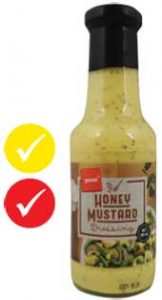
$2.79 per 295ml bottle
Nutrition per 100ml: 1220kJ; 2.1g saturated fat; 17.6g sugar; 927mg sodium; $0.95
Creamy with good honey mustard flavour.
Article sources and references
- Harvard Health Publications. The truth about fats: the good, the bad, and the in-between. http://www.health.harvard.edu/staying-healthy/the-truth-about-fats-bad-and-goodhttps://www.health.harvard.edu/staying-healthy/the-truth-about-fats-bad-and-good
- Krinsky N & Johnson E. 2005. Carotenoid actions and their relation to health and disease. Molecular Aspects of Medicine 26:459–516https://www.ncbi.nlm.nih.gov/pubmed/16309738
- Purdue University. 2012. Study: No-fat, low-fat dressings don’t get most nutrients out of salads. ScienceDaily. www.sciencedaily.com/releases/2012/06/120619230234.htmhttps://www.sciencedaily.com/releases/2012/06/120619230234.htm
- World Health Organization. 2015. WHO calls on countries to reduce sugars intake among adults and children. www.who.int/mediacentre/news/releases/2015/sugar-guideline/en/https://www.who.int/mediacentre/news/releases/2015/sugar-guideline/en/
www.healthyfood.com


